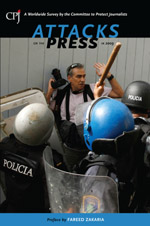Middle East & North Africa
2010
Iraqi radio journalist kidnapped by unknown gunmen
New York, February 18, 2009—The Committee to Protect Journalists is concerned about the fate of Iraqi reporter Hussam Daoud al-Eqabi, who was seized by unidentified armed men on Wednesday. Al-Eqbi is a political reporter for Al-Ahed, a radio station in Kirkuk affiliated with radical Shiite cleric Moktada al-Sadr.
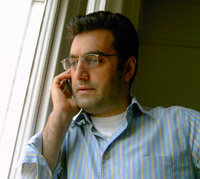
Columbia J-students learn the price of reporting in Iran
The two venues for the launch of Attacks on the Press in New York couldn’t have been more different. On Tuesday morning I was joined by Newsweek’s Maziar Bahari, and CPJ Asia Program Coordinator Bob Dietz in the hushed auditorium of the Dag Hammarskjöld Library at United Nations headquarters. The event was so well attended…
Yemeni reporter who covered reputed crime gang is slain
New York, February 16, 2010—The Committee to Protect Journalists condemns the murder on Saturday of Muhammad al-Rabou’e, a Yemeni reporter for the monthly Al-Qahira who wrote several articles about the alleged activities of a reputed criminal group. Al-Jazeera and other news outlets said five individuals burst into Al-Rabou’e home in the district of Beni Qais,…
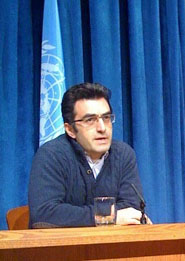
At U.N, Bahari and CPJ urge global attention
Newsweek journalist Maziar Bahari helped us launch Attacks on the Press at the United Nations in New York today. Bahari, an Iranian-Canadian citizen, was labeled an enemy of the Iranian regime and cruelly imprisoned for 118 days last year in Tehran. His very presence today, CPJ Deputy Director Robert Mahoney noted, was testament to the…
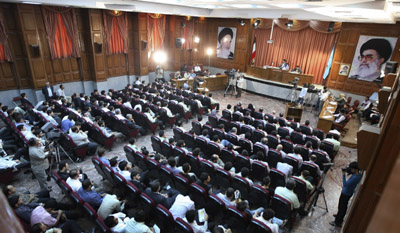
Attacks on the Press 2009: Preface
By Fareed Zakaria Toward the end of his 118-day ordeal inside Tehran’s Evin prison, Newsweek reporter Maziar Bahari had a bizarre exchange with his interrogator. Bahari had been held in solitary confinement since his arrest after Iran’s disputed presidential election in June; he had been subjected to near-daily beatings and interrogation sessions that stretched for…
Attacks on the Press 2009: Introduction
By Joel Simon Does “name and shame” still work in the Internet age? After all, the massacre of 31 journalists and media workers in the Philippines pushed the 2009 media death toll to the highest level ever recorded by CPJ. The number of journalists in prison also rose, fueled by the fierce crackdown in Iran.
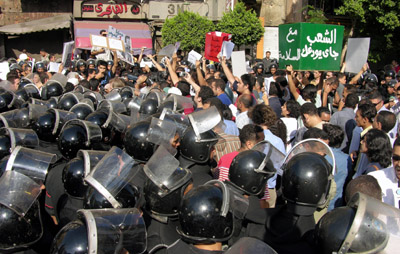
Human rights coverage spreads, despite government pushback
By Mohamed Abdel Dayem and Robert Mahoney The media in the Middle East loved the Intifada. Every detail of Israel’s violations of human rights in the late 1980s in the West Bank and Gaza appeared in the Arabic and Farsi press. The governments that owned or controlled these media outlets loved it, too. When pan-Arab…
Attacks on the Press 2009: Bahrain
Top Developments• Authorities block Web sites critical of the government, the king, and Islam.• Officials pursue politicized court complaints against critical reporters. Key Statistic 1,040: Web sites that the Ministry of Information ordered censored in September. Bahrain has made significant strides in improving its human rights record since political reforms enacted in 2001, particularly concerning universal suffrage…
Attacks on the Press 2009: Egypt
Top Developments• Government is among the region’s worst oppressors of online expression.• Several editors fined for reporting on the president and other sensitive topics. Key Statistic 3: Online journalists imprisoned as of December 1, 2009. Authorities followed familiar tactics to control news media, pursuing politicized court cases, imposing fines, using regulatory tools, and harassing journalists. With Egypt…
